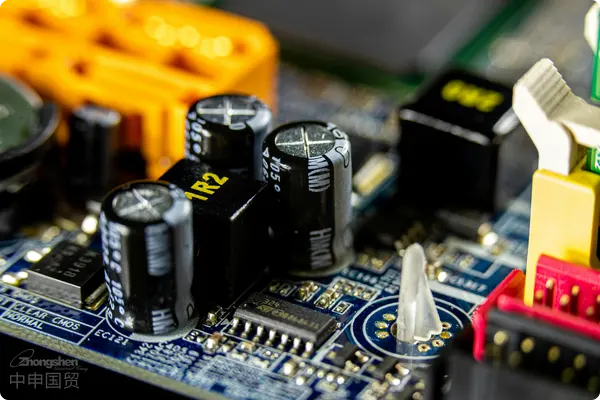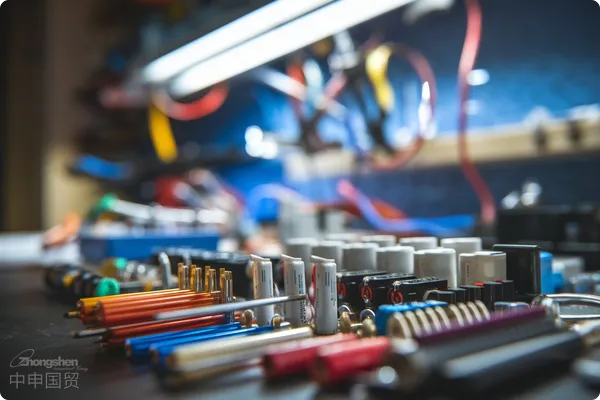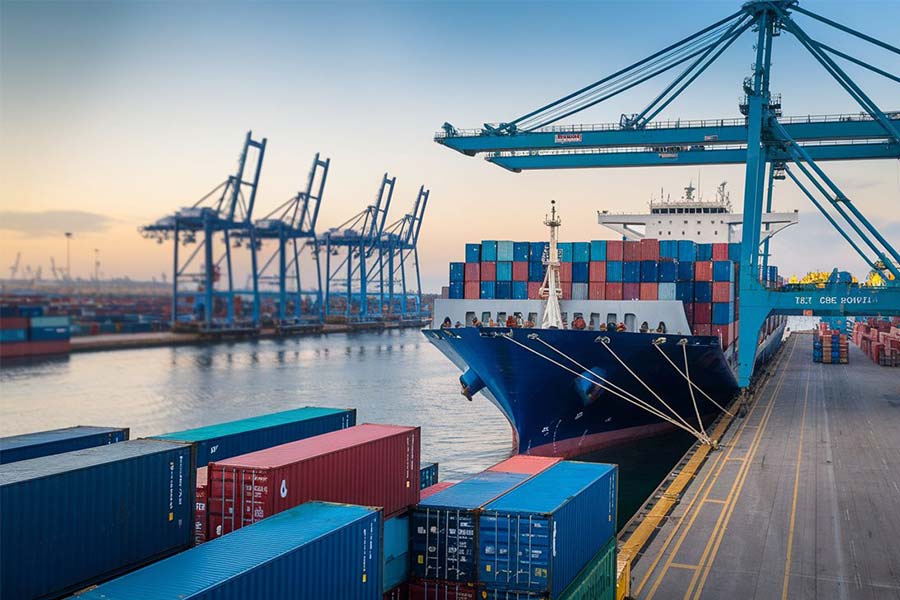- Shanghai Zhongshen International Trade Co., Ltd. - Two decades of trade agency expertise.
- Service Hotline: 139 1787 2118
With Singapores increasing demand for electronic products and technical equipment, Chinese-made electrical components hold a significant position in the Singaporean market. To ensure smooth export of electrical components to Singapore and meet its stringent quality and safety standards, enterprises must familiarize themselves with the relevant regulatory requirements and export procedures. This article provides a detailed introduction to the requirements and considerations for exporting electrical components to Singapore, helping businesses enter this important market compliantly and efficiently.

Contents
ToggleProduct Classification and HS Codes for Electrical Components
Electrical components are the core parts of various electronic products, including resistors, capacitors, semiconductor devices, connectors, etc. To ensure accurate customs declarations, enterprises must understand the specific product classifications and HS Codes. For example:
- Resistors: Classified under HS Code 8533.21.00, covering fixed resistors.
- Capacitors: Classified under HS Code 8532.10.00, primarily used for energy storage in electronic circuits.
- Semiconductor devices (e.g., transistors): Classified under HS Code 8541.29.00, including various semiconductor components.
Correct HS Codes not only reduce customs clearance time but also avoid penalties and cargo detention risks due to misclassification. Therefore, enterprises must ensure all product information is accurate during declaration.
Singapore Market Access Requirements
Technical Standards and Certifications
Singapore imposes strict technical standards and certification requirements for imported electrical components, particularly regarding product safety and electromagnetic compatibility. Below are some key certification requirements:
- CPSR and SAFETY Mark: Under the Consumer Protection (Safety Requirements) Regulations (CPSR), certain electrical components must comply with specified safety standards and register with the Consumer Product Safety Office (CPSO) to obtain the SAFETY Mark. This mark indicates compliance with Singapores safety standards and is a mandatory requirement for electrical components entering the Singaporean market.
- Electromagnetic Compatibility (EMC) Testing: Electrical components may cause electromagnetic interference to other electronic devices and must comply with EMC requirements under IEC or Singapore Standards (SS) to ensure no interference with other equipment.
FORM E It is recommended to verify through the following methods:Technical data
The FORM E Certificate is a China-ASEAN Free Trade Area Certificate of Origin, which is mandatory for exports to Singapore. The FORM E Certificate helps enjoy preferential tariff treatment and enhances product competitiveness in the Singaporean market.
III. Export Operation Process and Precautions
The export process for electrical components is complex, involving multiple steps and documentation management. When collaborating withExport Representationan agency company, enterprises can refer to the following workflow to ensure compliance and efficiency:
Prepare Export Documents
First, the export agency provides market quotations and confirms transaction terms. Once confirmed, sign theforeign tradeExport Contract for Trading Goods with the importer and prepare a Proforma Invoice as the basis for export operations.
Booking and Shipment
The agency company prepares relevant export documents based on the cargo information, including the Commercial Invoice, Packing List, Certificate of Origin, etc., ensuring all documents are complete and compliant with Singapore Customs requirements.
Obtain product certifications and registrations.
For electrical components requiring the SAFETY Mark, the agent company or exporting enterprise needs to register the product with CPSO and submit necessary test reports and compliance documents.
Logistics Arrangement and Customs Clearance Procedures
- Handle and Foreign Exchange Verification: The agent company is responsible for contacting the freight company to book shipping space, selecting appropriate transportation methods, and ensuring the safe delivery of goods to Singapore.
- Before entering the Singapore market, export enterprises should fully understand the relevant regulations and requirements of Singapore for detection instruments to ensure that their products meet all the standards of the importing country. At the same time, it is recommended to conduct market research to understand the products and technical specifications of potential competitors in order to maintain competitiveness in the market.: Prepare all customs clearance documents and declare to customs. The agent company should work closely with the enterprise to ensure that the customs documents meet Singapores import inspection requirements, reducing the risk of clearance delays due to documentation issues.
5. FX Settlement AgencyThe export business of Laser Gas Analyzers involves a relatively complex process and strict compliance requirements. Through accurate classification of commodities, market access certifications, and professional export agency operations, enterprises can successfully complete the export of Laser Gas Analyzers to Singapore. It should be noted in particular that Singapore has special radiation protection requirements for the import and use of laser equipment. Enterprises need to apply for relevant licenses in advance to ensure compliance with local laws.
After the goods are successfully exported, the agent company must assist in handling foreign exchange settlement, converting foreign currency into RMB, and completing foreign exchange verification procedures to ensure legal and compliant foreign capital flows.

Key Considerations and Compliance Recommendations
Stay updated on the latest regulations and prepare for certifications.
Enterprises should stay updated on Singapores latest regulations and certification requirements for electrical components, especially the latest policy changes regarding CPSR and SAFETY Mark. Ensuring all products meet safety standards and obtain necessary compliance certifications can effectively improve market access success rates.
Choose a reliable agency company.
Due to Singapores strict inspection standards for imported products, selecting an experienced and professional export agent company can effectively reduce compliance risks and improve clearance efficiency. Agent companies play a crucial role in export operations, document management, and certification applications.
Document Management and Communication
Document management is crucial for exporting electrical components. Enterprises should maintain close communication with the agent company to ensure all document contents are accurate. At the same time, they should stay in close contact with Singaporean importers to meet their compliance requirements and market demands.
V. Summary
The export of electrical components involves complex certification processes and strict compliance requirements. When entering the Singapore market, enterprises need to focus on various aspects such as product classification, safety certifications, and market access requirements. By collaborating with professional export agent companies, enterprises can effectively reduce risks in the export process, ensure smooth entry into the Singapore market, and gain consumer trust.
We hope this article can provide useful guidance for enterprises in the export business of electrical components, helping them efficiently expand into the Singapore market.
Related Recommendations
? 2025. All Rights Reserved. Shanghai ICP No. 2023007705-2  PSB Record: Shanghai No.31011502009912
PSB Record: Shanghai No.31011502009912










